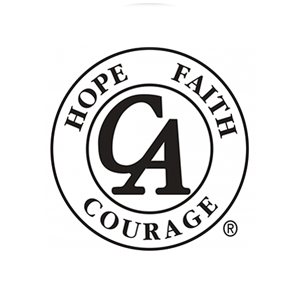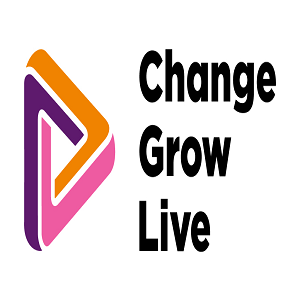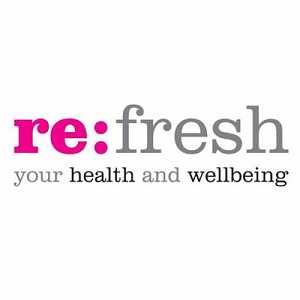Drug & Alcohol Rehab in Blackburn

How Does Rehab Work?
Rehab involves the support services and therapies that people with drug or alcohol addiction receive to overcome addiction and subsequent relapse. After a medical assessment and detox are completed, individuals will receive addiction treatment in the form of therapy. Treatment is made up of therapy from a professional counsellor, the attendance of group meetings as with a 12 Step programme, and the option of inpatient or outpatient rehabilitation. Inpatient rehab services require that clients live at the residence or centre for the period of therapy. Outpatients will attend therapy by counselling or meetings but will not stay at the facility. Consultation with a medical expert plus an individual assessment will help evaluate if inpatient or outpatient services are suitable for your requirements.
What Happens During Residential Rehab?
Entering rehab is the first step towards sobriety. Whilst the journey can be challenging, it is possible to avoid relapse. You could possibly feel anxious about the process, so let us assist you by taking a closer look at what you should expect during rehab.
During rehabilitation, you are going to receive an individualised assessment done by a professional. The purpose is to determine the best treatment plan based on your history of addiction and current condition. Here, medical staff will look for comorbid disorders such as mental health conditions that exist with addiction.
The next part of treatment is detoxification. Detox assists with the removal of harmful substances within the body. It may be important that it is medically supervised to manage withdrawal symptoms. This is especially true for benzodiazepine and alcohol dependency. The last phase of the programme is the treatment itself (therapy). Individuals can then enter inpatient or outpatient treatment.
Rehabilitation includes meeting with a counsellor for private & group sessions, participation in skill-building activities as with an inpatient or residential rehab, or group meetings that are common with outpatient 12 Step programmes. We look at the various phases of rehab in greater detail.
1. Assessment

For any individual entering rehabilitation, a medical assessment must be performed. It is a standard procedure meant to put your mind at ease as the specialist looks for specific behaviours, previous mental health issues, and general health. In an inpatient programme, it is not uncommon to have an admissions screening performed by telephone prior to booking you into treatment. Phone assessments allow the treatment centre to determine the relevant programme for you. It also provides staff with information to individualise support services during detoxification.
Whether you or someone you know require professional support to overcome substance addiction, it all begins with an individual assessment. Assessments are important to the success of therapy because it determines the type of therapeutic plan based on the addiction and potential comorbidities (depression or anxiety).
2. Detox

Detox involves the cessation of drugs and alcohol from the body. With professional help, it is safely facilitated and is most commonly monitored in a residential rehab because of the dangers associated with withdrawal symptoms.
The reason medical detoxification from substances is advised is owed to the difficulties and the nature of withdrawal symptoms that may occur during this time. Without reliance on a professional service and medical attention, the risk of relapsing is increased. Individuals who receive detox and an assessment will be required to participate in a therapeutic programme which entails residential rehab or outpatient programmes.
3. Therapy

Once a medical assessment and detox are finished, individuals will start therapy. The therapeutic intervention will consist of inpatient or outpatient services which depend on your finances and life commitments. Some of the most common therapies you can expect at a treatment facility include traditional one-on-one therapy, trauma counselling, and skill development, as well as group therapy sessions.
Step by Step Process for Residential Rehab
To understand your medical and mental health history.
Arrange a suitable date to begin your journey to recovery.
Begin the managed withdrawal process from substances including alcohol.
To understand the root cause of addiction and how to overcome it.
Aftercare is provided to help manage the risk of relapse.
To help heal the wounds that addictive behaviour has caused others.
Find your Nearest Rehab Centre in Blackburn
The nearest rehab centre is Inspire Preston Drug and Alcohol Service.
Address: Inspire Preston Drug and Alcohol Service, St Wilfrids building, Fox St, Preston PR1 2AB, United Kingdom
Call 0333 4444 432 to discuss your alcohol or drug rehab requirements and any other questions you may have about the process of residential rehab.
Outpatient Addiction Services in Blackburn
Inpatient or outpatient programmes for addiction can be determined by your budget requirement & individual circumstances. Nevertheless, it is an individual process that requires commitment and awareness to succeed. To help you understand these different options, we look at outpatient addiction services compared to residential rehab.
When you progress into an outpatient programme, you will be expected to meet with a therapist, support counsellor, or group leader once or twice every week. Rather than stay within a residential setting, you can continue to attend to work commitments and care for your family while you receive treatment for dependence.
If you are interested in receiving outpatient care, it is important to find a relevant programme for your needs. Outpatient services range from paid private counselling to free charitable organisations that specialise in substance dependence.
The Benefits of Outpatient Services
Private Outpatient addiction services also provide personalised care for those looking for the best possible support and success in recovery. – Owing to the flexibility of outpatient therapy, it can accommodate a large range of individuals and financial situations. Therapy sessions are attended once or twice weekly under the guidance of a certified therapist or counsellor. – It is more cost-effective than a residential treatment programme.
The Challenges of Outpatient Services
Outpatient options will always have an important role in rehabilitation but for alcohol and drug addiction, remaining in the same environment with access to triggers and regular social circles is likely to risk relapse. Furthermore, free outpatient services provided by the NHS or UK-based charities do not provide the same tailored programme that private outpatient services provide, and there is typically a waiting list before you can be accepted for treatment.

How Much Does Rehab Services Cost in Blackburn?
You can expect to pay between £1500 – £4000 per week for residential rehab. If you cannot afford a private addiction plan, you can rely on free and more economical recovery programmes to deal with your drug or alcohol issues. There are a number of organisations that assist those struggling with free and affordable services throughout the UK.
Fortunately, free programmes are provided by organisations including the NHS and charities such as Turning Point (that require self-referrals). Other organisations that provide free and community-based therapies for drug and alcohol addiction include Alcoholics Anonymous (AA), Cocaine Anonymous, and Narcotics Anonymous.
Support Groups in Blackburn

Blackburn Back To Basics
St Peter & St Paul's Church, Blackburn Rd, Rishton BB1 4HD

Blackburn General Share
St Peter & St Paul's Church, Blackburn Rd, Rishton Main church doors entrance. BB1 4HD

Living The Solution
45 Railway Rd Blackburn BB1 1EZ UK
The Pros and Cons of Seeking Treatment in Your Local Area
Pros
1. You are familiar with the area which may provide a layer of comfort/safety.
2. Family or friends can easily travel to visit or are close by.
3. You may save on the costs of travelling long distances for addiction treatment, or free addiction services may only be offered in your hometown.
Cons
1. A local environment means access to drug dealers or other triggers. This is more of an issue if you decide upon outpatient programmes.
2. Failing to consider locations outside your area could equate to missed opportunities for more valuable and rewarding programmes.
3. Addiction treatment services nearby do not always offer the best standard of treatment.
If you are unsure of how to look for a rehab service you can trust, consider the CQC. The CQC website offers listings of rehabilitation services and organisations that are ranked according to the standard of its services.



